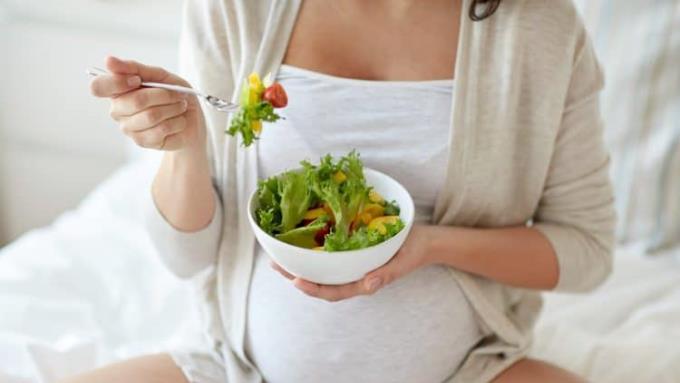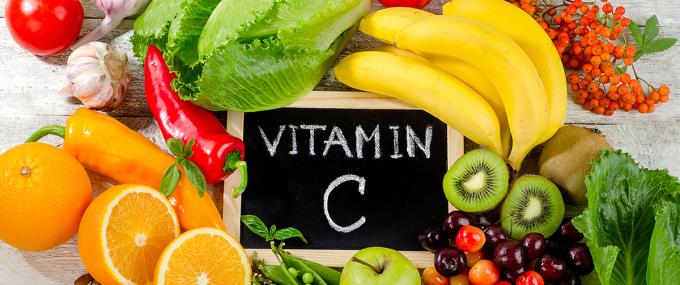Supplementing with vitamin C for pregnant women every day helps the fetus develop and grow healthy. Excess or missing additions have negative consequences.
Vitamin C is considered the "best friend" of the immune system. Supplementing vitamin C for pregnant women plays an important role in the health of mothers and babies. You need the right amount and dose to get the unexpected benefits. However, how much should I add? Let aFamilyToday Health follow the following shares to understand more about this.
How much vitamin C is enough for pregnant women?

The recommended amount of vitamin C per day (RDA) for pregnant women 19 and older is 85mg and 80mg for women 18 and younger.
The highest allowed daily intake is 2,000mg for women 19 and over and 1,800mg for women 18 and younger.
Why need vitamin C supplement for pregnant women?
Vitamin C's antioxidants help fight infections and protect the body from toxins.
Helps repair tissues, heal wounds, grow bones and provide healthy skin.
Creates collagen, a protein found in cartilage, bones, tendons and skin
Helps the body absorb iron from food (mainly from plants). Iron helps to regulate hemoglobin, protecting you from anemia .
Prevent bleeding gums, reduce bleeding under the skin.
Helps prevent impaired veins due to cholesterol buildup and eliminate harmful substances.
Supports fetal development. Helps to create tissues, strengthen placental blood vessels, provide more oxygen to the fetus, reducing the risk of abortion .
A great remedy for constipation and making it easier to have bowel movements.
Improves skin elasticity, reduces stretch marks and makes them disappear after birth.
Vitamin C is beneficial for the nails and hair of the mother and fetus.
Foods that provide vitamin C for pregnant women

Foods that are often high in vitamin C are citrus fruits, green vegetables, and a few other fruits. Fresh foods are the best sources of vitamins because high heat can destroy vitamins. Grains and juices also help replenish this vitamin.
Fruits - Vitamin C is found in citrus fruits such as oranges, lemons, and tangerines and can also be found in apples, apricots, persimmons, peaches, strawberries ... You can eat them raw, juice or. preserve.
Vegetables - Tomatoes, beets, pepper, and fresh potatoes are great sources of vitamin C. Cabbage, especially in fermented form, is also rich in vitamin C.
Animals - Both meat and fish contain enough vitamin C to meet your daily requirements.
Learn more: 11 wonderful fruits for pregnant mothers
Complications when pregnant women lack vitamin C
Vitamin C deficiency can cause the following serious complications:
Vitamin C deficiency can prevent the fetal brain from developing completely. Pregnant women should make sure they get enough vitamin C in their diet every day from the start. If the brain has been damaged before supplementing with vitamin C, there will be no benefit. Research has found that brain damage can happen very early in pregnancy.
Root bleeding, disrupts capillary veins (small blood vessels) below the skin. If this condition persists, it can lead to rickets .
Causes the skin to dry, slows down the healing process, bruises.
Should I take vitamin C supplements for pregnant women?
You can easily get vitamin C through the foods you eat every day, so there's no need to take supplements. A glass of orange juice for breakfast will provide the necessary amount of vitamin C.
You should talk to your doctor before taking vitamin C supplements as it may increase your risk of preterm birth.
What are the possible side effects of vitamin C overdose?
Do not exceed the recommended amount of vitamin C, especially during pregnancy, as it can lead to a number of complications:
Consuming more than 2 grams of vitamin C per day continuously can make gout worse and cause kidney stones.
Women often take high doses of vitamin C if stopping it abruptly can lead to a deficiency, so reduce it slowly.
Taking high doses of vitamin C can lead to stomach upset, nausea, fatigue, insomnia, headache, diarrhea, hot flashes, and rash.
Some of the other side effects of vitamin C are esophagitis, Parkinson's disease , red blood cell complications, thickened blood vessels around the heart, skin irritation, digestive tract problems, and urinary complications.
Increases risk of high blood pressure. Women with diabetes can increase blood sugar.
Some studies say that supplementing with vitamin C will help prevent rickets, a vitamin C deficiency disorder. However, according to the Pregnancy Association , consuming too much vitamin C during pregnancy can cause scurvy. (The baby is born with vitamin C deficiency). When you drink a lot, the kidneys release excess vitamin C, causing resistance or intolerance in the baby.
aFamilyToday Health does not offer medical advice, diagnosis or treatment.













